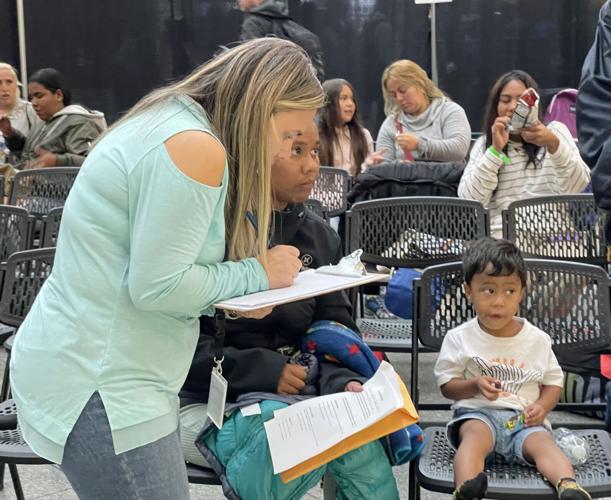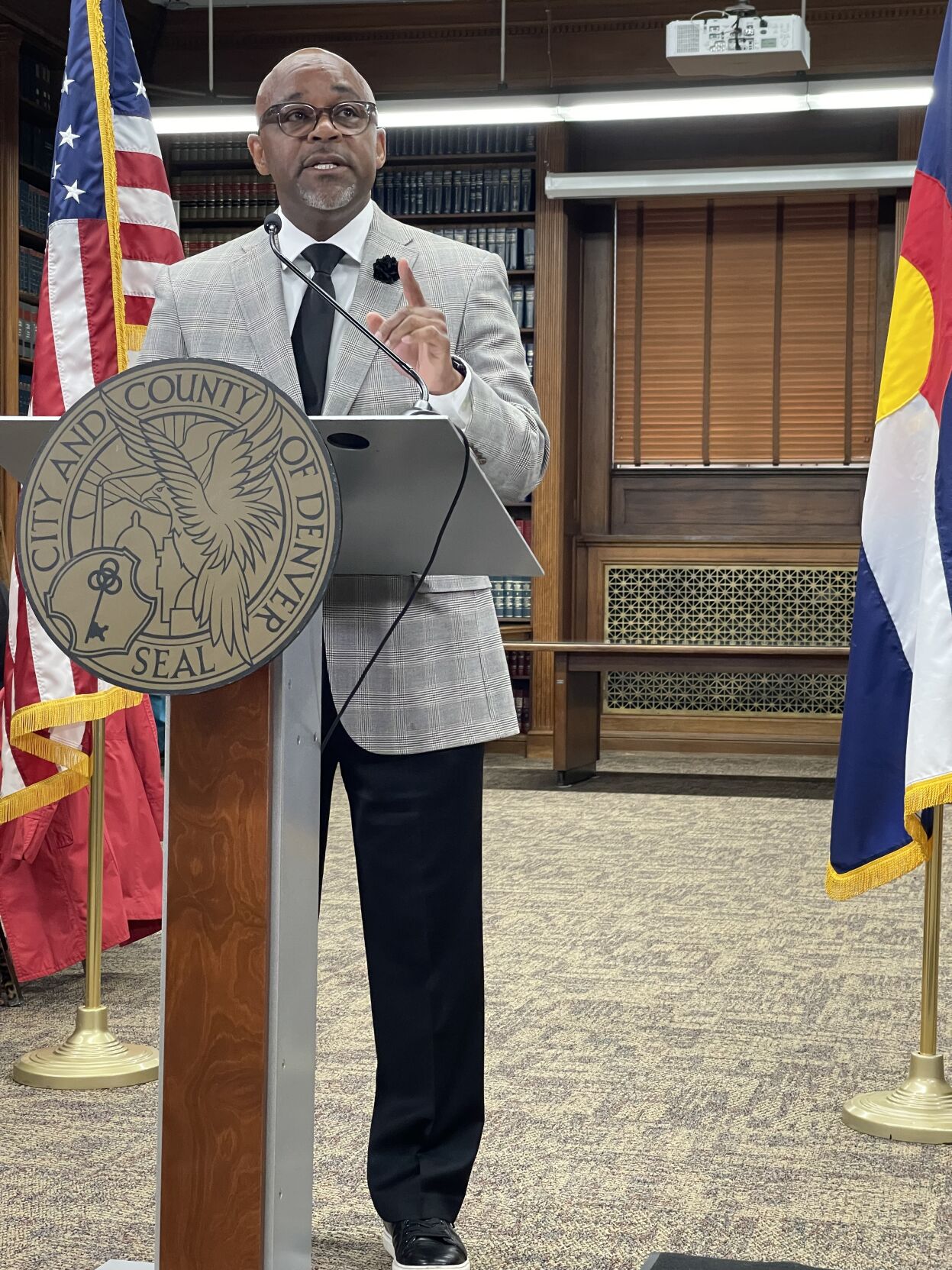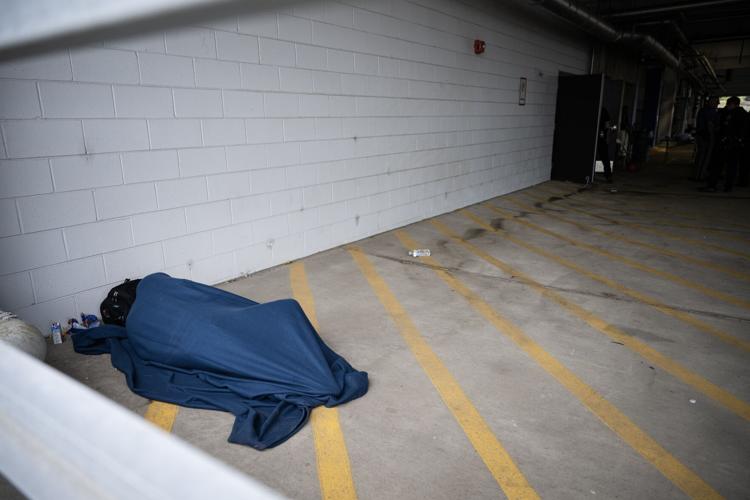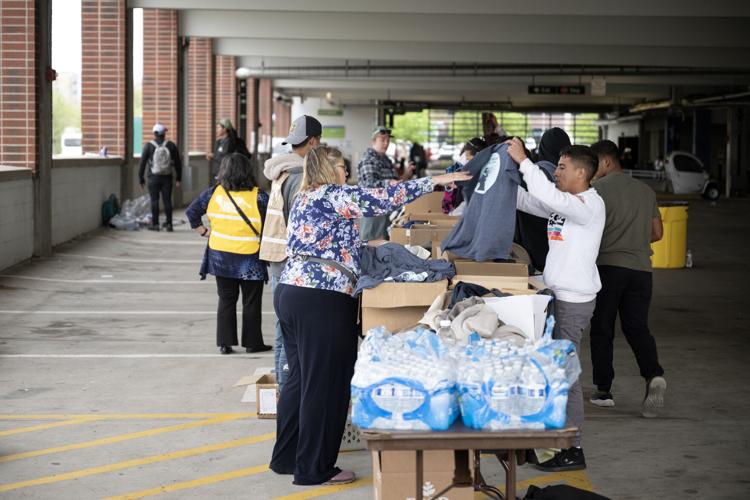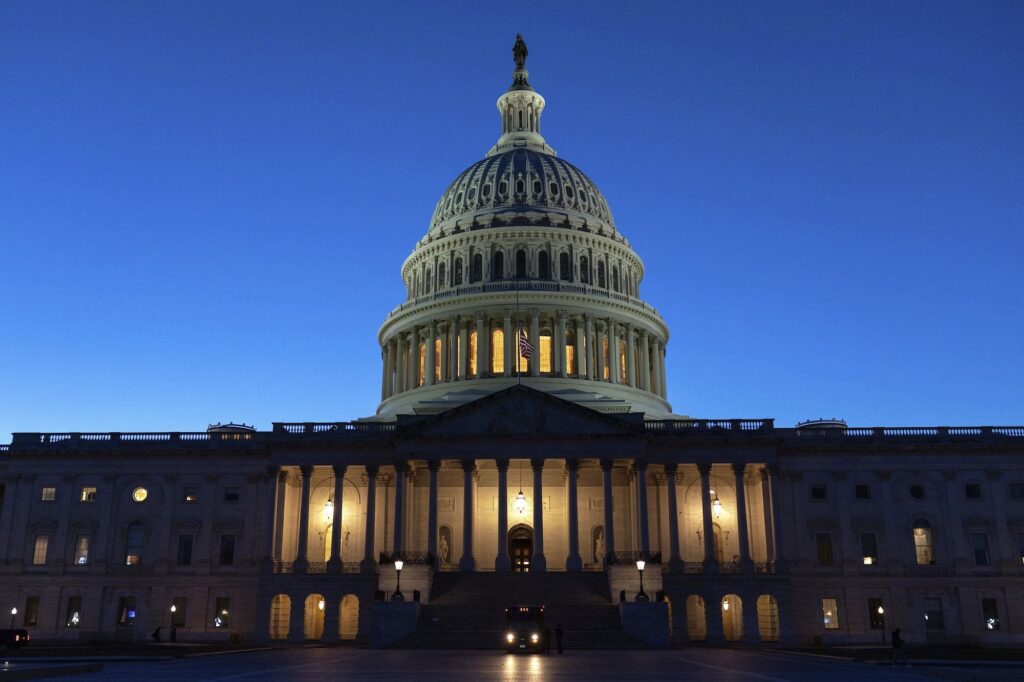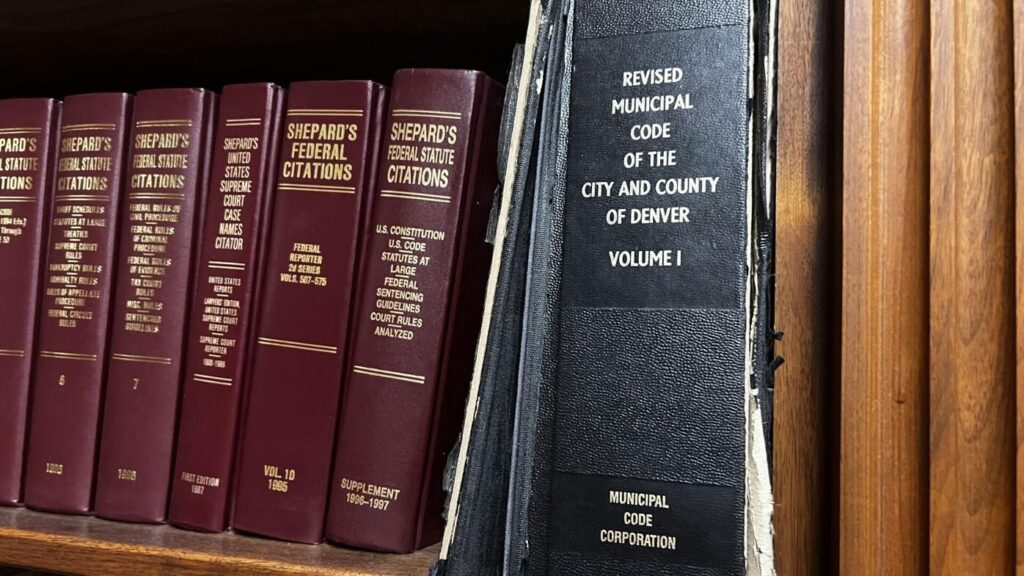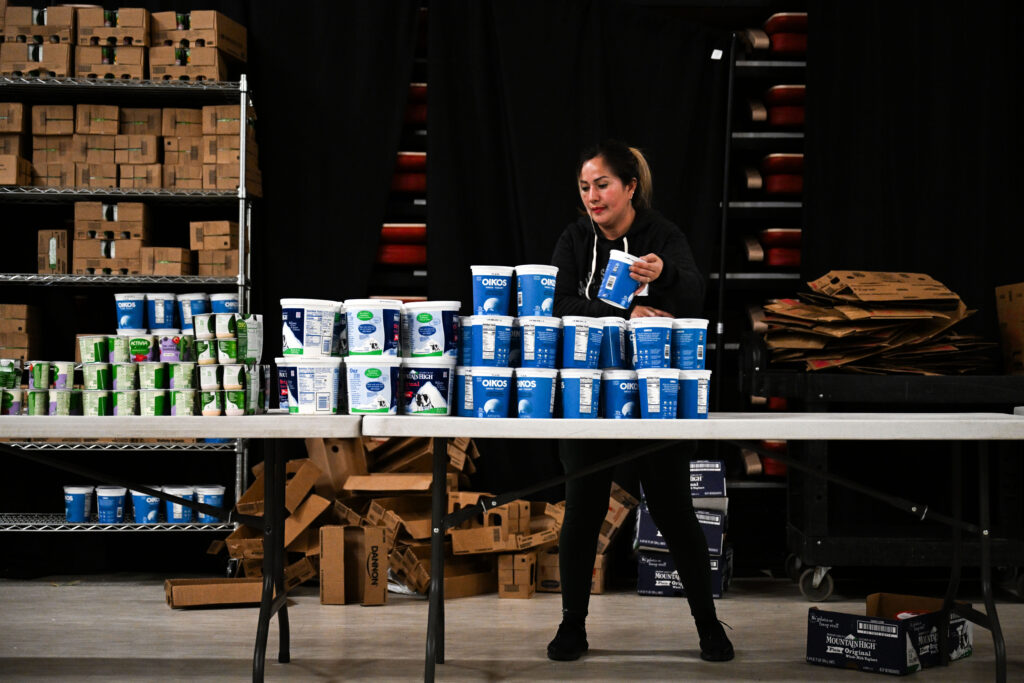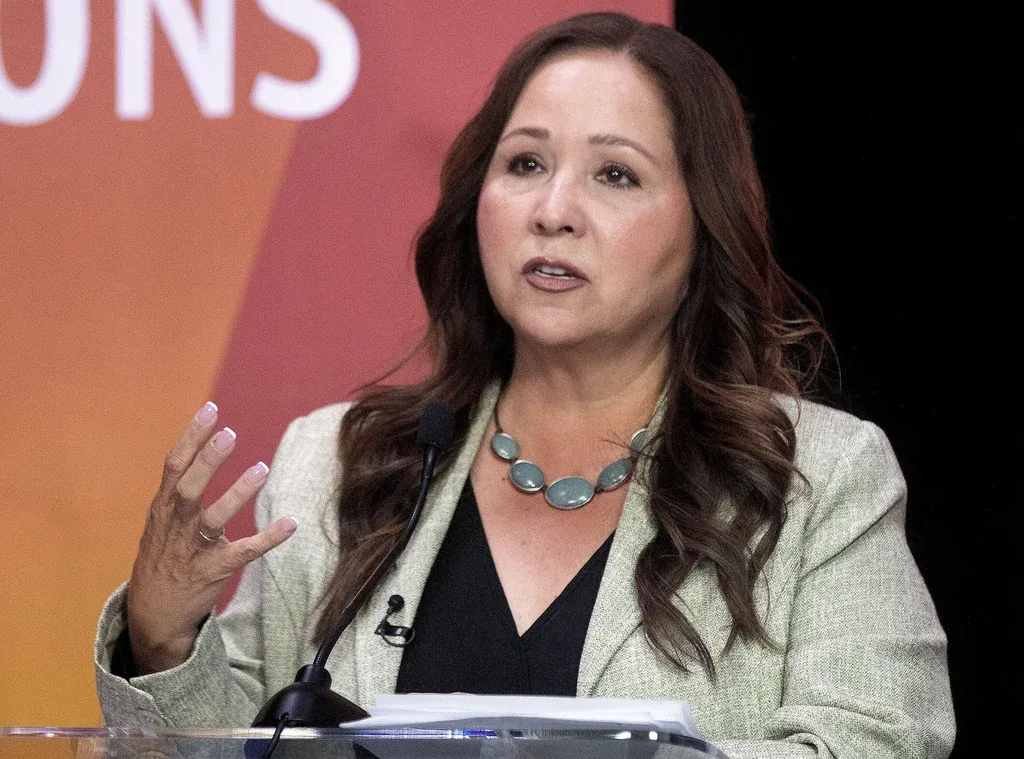Denver area shelters — at or near capacity — brace for immigrant surge
Ready or not, here they come.
Local nonprofits — that for months have helped Denver temporarily house immigrants from South and Central America — are bracing for a new surge with the sunset of a pandemic-era border restriction that ends Thursday.
“All the shelters are pretty much at capacity,” said Kristen Baluyot, Denver metro social services director for the Salvation Army. “So, any influx is going to be very hard for us to respond to.”
Catholic Charities, the Salvation Army and Denver Rescue Mission have been at the forefront of the response to the crisis.
In less than 10 days, the number of immigrants has more than doubled in Denver shelters.
Called “Title 42,” the portion of the U.S. code, the federal policy adopted under the Trump administration, allowed authorities to swiftly expel immigrants to help slow spread of COVID-19.
Immigrants apprehended under Title 42 were returned to their home countries or sent back to Mexico.
The pandemic’s federal emergency designation — and, along with it, Title 42 — will end just before midnight Thursday. Anticipating the policy’s end, the number of immigrants at the U.S. border with Mexico has swelled.
On Tuesday, Denver Mayor Michael B. Hancock declared an emergency activation — his second in five months — to leverage federal resources to address the humanitarian crisis.
The city has spent nearly $16 million since December to support arriving immigrants. The federal government, Hancock said during a press conference Thursday, has reimbursed the city about $900,000.
This surge, Hancock said, may require cutting services. But he stopped short of saying immigrants would be turned away.
“We don’t get advance notice that busloads of people are coming,” Hancock said.
He added: “We’re in desperate need for emergency shelter space for what will be coming our way.”
To keep up with demand, the city is operating five shelters and relocated its immigrant reception center to accommodate the greater number of arriving immigrants.
Diangerli and her son are but two of them. She fled Venezuela nearly two months ago with her 2-year-old son to be reunited with her husband, who now lives in Denver. The 20-year-old mother was among those being processed Thursday at the new reception center, where city officials directed newly arrived immigrants to local shelters.
‘A short window for immigrants’
Despite what Denver shelters are seeing, no one really knows what the surge here will look like. Conventional wisdom, Hancock said, had suggested Denver wouldn’t experience a jump in new arrivals until June, catching the city off guard.
Immigration attorney Alex McShiras of Pikes Peak Immigration Law said Colorado cities shouldn’t see an immediate Title 42 effect.
“Usually, when there’s an influx of people coming, it doesn’t hit Colorado until it’s hit the border, so Texas and Arizona will feel the effect first,” said McShiras, the firm’s president. “It could be weeks or months before we feel it.”
He said that most people who have been walking for months to get to the border are oblivious to Title 42, but the coyotes who charge families money to drive them across the border are waiting for the opportunity to line their pocketbooks.
“The smugglers know Title 42 will be lifted,” McShiras said. “The coyotes know it’s a short window for immigrants to cross.”
He guessed that once the surge hits Colorado, it will last a week and then slow down.
El Paso County officials are closely watching the developments in Denver.
“While we are not specifically preparing for migrant sheltering and have no credible intelligence of a migrant surge in Colorado Springs, part of our overall mission in emergency management is to support and coordinate mass care — sheltering and feeding,” said Andrew Notbohm, acting director of Pikes Peak Regional Office of Emergency Management.
“We are in continual contact with our partners to support and enhance this function for any type of emergency,” he said.
There is no timetable for non-profit groups, such as Colorado’s Servicios de la Raza, a 50-year-old non-profit with offices in Denver and Pueblo.
Organizers feel the urgency and they’ll be ready for whatever happens.
“There’s no way to know how many people will end up in Denver. I’ll help anybody who comes. I don’t care,” said President and CEO Rudy Gonzales. “We’ve already been inundated.”
He said that Servicios de la Raza has been active with Denver’s city-run shelters since last fall. Private funding helps the organization provide services, such as behavioral health, benefit enrollment, financial empowerment and even diapers and formula.
This week, when a Venezuelan family showed up at the door of the offices at 3131 W. 14th Ave., one of his office staff found them a hotel room.
“Thank you to our mayor for opening up emergency shelters. I appreciate that. This is what we need in our politicians. That kind of moxy,” said Gonzales, who is the son of Denver legend Rudolfo “Corky” Gonzales, a well-known boxer who became a leader in the Chicano movement.
He is frustrated with the federal government’s decision to send troops to the border.
“Why not send doctors? Why not send teachers? Why not social workers?” he said.
‘Our capacity is limited’
The migrant wave isn’t hitting Colorado cities the same.
Aurora, the Colorado city most known for its immigrant population, has not yet received official notice of any new arrivals.
Unlike Denver, which is also a county, Aurora does not receive health and human services funding.
“Without any city-owned shelter space or related infrastructure, the city is currently limited in its ability to house individuals,” Ryan Luby, a city spokesman, said in a statement.
A separate non-profit — which places extreme cases of asylum-seekers into host homes and donated housing — has been so overwhelmed, it ran out of money.
Between August and January, Colorado Hosting Asylum Network (CHAN) found homes for 23 Venezuelan and Columbian families.
CHAN Director Denise Chang said the organization had settled six more families since February, each with its own story of why they fled their homes.
“Some left because they were earning only a few dollars per month and could not care for their families. Some were in the military or police and were ordered to commit crimes against others and refused, and fled,” Chang said, adding some came to Colorado after being persecuted.
Others simply wanted to build a new life in place where they felt safe, Chang said.
Chang said that because the organization works off of a “home host model,” it has had to turn people away.
“Our capacity is limited, so the large numbers of people who need help don’t directly affect us materially,” she said. “Just in the pain of seeing so great a need and having to say no.”
Many of the new arrivals said they are fleeing corrupt regimes in Central and South America, specifically Venezuela. Some seek economic relief. Others a piece of the American dream.
The influx illustrates the calamity that’s been unfolding at the U.S. border for years, a crisis that is spilling over into cities in America’s interior, including Denver, which is more than 600 miles from El Paso, Texas, the closest U.S. border.
City officials said the immigrants pick Denver because of El Paso’s relative proximity to Denver, at least in terms of being able to get to the city by bus with relative ease. Officials noted that the bus fare to Denver is less expensive from West Texas to other places in the country. Organizations that support the immigrant community also highlight the resources and diversity in the community, as well as its status as a “sanctuary city,” as reasons attracting the immigrants to Denver.







